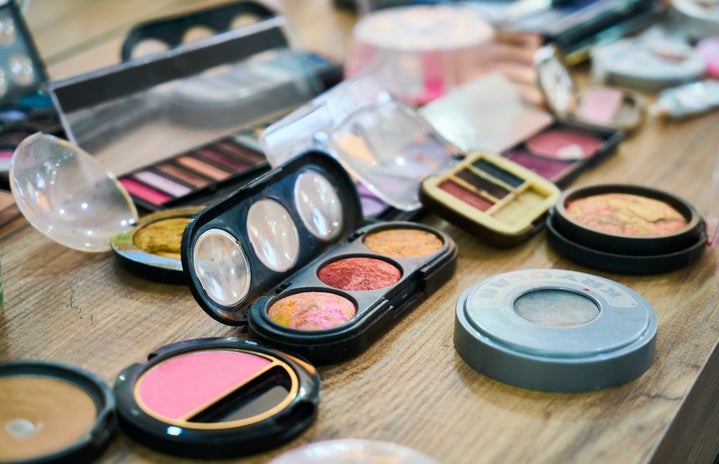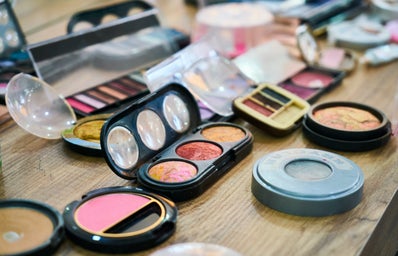The makeup industry in the USA alone grossed over $22 billion in 2021 and over $500 billion globally in 2021 with an annual compound rate of 4.75%. The heads at the table leading the beauty industry include L’Oréal, Estée Lauder Co., Unilever, Coty, and Johnson & Johnson. These companies own smaller brands that you would recognize in your vanity. L’Oréal is the parent company of Maybelline, NYX, and Garnier. Johnson & Johnson is the parent company of Neutrogena, Clean and Clear, and Aveeno. Coty is the parent company of 49 influential brands on the market such as KKW beauty, Kylie cosmetics, and Cover girl. Éstee Lauder is the parent company of Tom Ford Beauty, Bobbi Brown, Bumble and Bumble, Clinique, and Too Faced. Unilever is the parent company of Dove, St.Ives, Ponds, and Axe. Most of these parent companies, especially the bigger ones, own more than 30 brands that are pinned against each other and fill the market with a variety of products with all the sales going to the same parent corporation.
An industry with such a high revenue becomes very desirable for influencers, companies, and celebrities to try to get involved in it with as many products as possible. Some of these brands have become very successful and follow powerful social missions such as Rare Beauty, which is cruelty free and has a goal to celebrate everyone’s beauty, and Fenty Beauty, which focuses on a wide range of skin tones and is also cruelty free. Others have similar missions but have not been as successful or are not cruelty free and can be seen as just a way that that individual is trying to make a quick buck, but who can blame them for how successful other brands have become. Finding brands that you feel have a valuable or beneficial impact on society are always ways to make you feel good about your purchases and a great way to influence the world.
With this in mind, it is very easy for these corporations to get around cruelty free and environmental movements. A company can both represent the drug store label with cheap prices as well as get the revenue from high-end luxury items that hold the weight of being cruelty free and environmentally friendly certified. Some products are certified, but this may not always be true and it is important to search every brand you purchase to double-check. This can be done through Leaping Bunny or PETA or even just asking “is [the brand] cruelty free?” and see what you can find online. Beware, if a brand sells in mainland China or any other location that requires animal testing then they do have products that are tested on animals, but they can still technically get cruelty free certified because the products they choose not to sell in retail stores in these specific locations are not tested on animals.
As consumers, everyone has influential power and the responsibility to try and change the marketplace for the better. One simple way to use that power is to try and research products, both makeup, and skincare, to find the brands within your price range that are environmentally or animal friendly. Some brands that are cruelty free that do not sell in retail stores in locations where it is required to test on animals are Tatcha, Hourglass, Urban Decay, Too Faced, Anastasia Beverley Hills, Elf, The Ordinary, Ren Skincare, Milk Makeup, Drunk Elephant, Tarte, Fenty Beauty, and Bare Minerals. A way to go further is to find cruelty free brands whose parent companies are also cruelty free, but this is difficult as I have yet to be able to find a truly large parent company that is 100% cruelty free. Amyris, who owns three brands including Biossance, and Paris Presents Inc, which own Ecotools, are both small parent companies that are cruelty free corporations, and Procter and Gamble, even though not fully cruelty free, is one of the large corporations striving to do better by committing to be cruelty free by partnering with leading animal welfare organizations. However, many brands do not have a parent company as they are the main company. A few of these brands that are completly cruelty free and do not sell their products in retail stores in locations where animal testing is required are Thrive Cosmetics, Rare Beauty, Olaplex, Supergoop!, Skinfix (who is also environmentally friendly), 100% Pure, and Dr. Dennis Gross skincare.


